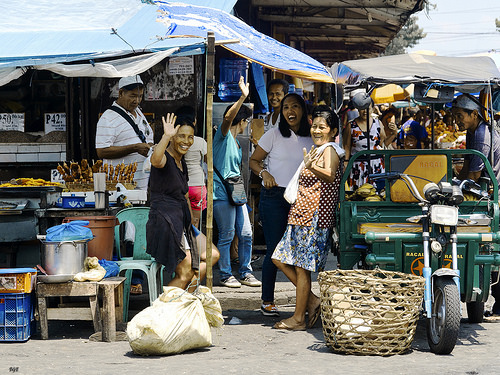After the Brexit referendum, the UK stands at a crossroads. Free from the restrictions of Brussels, Great Britain is free to chart its own destiny. Some hope to use that freedom to undermine free markets, that leaving the EU will alleviate pressure for deregulation or privatization. Others see departure from the EU in 2019 as the door to a new vista of trade and innovation.
We get an eyewitness account of the latter group in a new essay in Religion & Liberty Transatlantic by Kaetana Leontjeva-Numaviciene – but we also get an insight into human anthropology. In “Going beyond efficiency: How Catholic social teaching strengthens the case for trade,” Kaetana describes the recent launch of the Institute for Free Trade in the UK, which she attended. There, the British secretary of state, Boris Johnson, said:
“It is only now that the UK is able to resume its historic function as the world’s leading campaigner and agitator for free trade.” This point was reiterated by Liam Fox, Secretary of State for International Trade, who said, “We need to champion that cause of free trade once again loudly and unequivocally.”
She connects these economic arguments with traditional Christian teachings about the harmony that trade creates among every tribe, nation, and tongue. Catholic social teaching, she writes:
reminds us that we are all a family, and man-made restrictions should not be put up to prevent the cooperation of its members. … Each human being is unique, with his or her own talents and capacities, so trade allows us to exchange the diverse fruits of our labor. By restricting trade, politicians undermine, not only trade as such, but also the specialization and realization of human talents.
Quoting a breadth of Christian thinkers, from St. John Chrysostom in the fourth century to twentieth century papal encyclicals, she describes how trade is deeply grounded in a proper understanding of our human nature – and how opening the UK’s market to, e.g., the developing world’s agricultural produce, benefits diverse and disparate groups across the globe. In the process, all parties hone their unique skills, develop bonds of mutual affection, and prosper together:
Rather than being demonized by its opponents or idolized by supporters, free trade should be recognized for what it is: an exchange among free persons, a process, a means to a better end, not an end in itself. A means that, when people are free, brings about their true flourishing as God had intended.
Read her full essay here.
(Photo credit: Brian Evans. CC BY-ND 2.0.)
